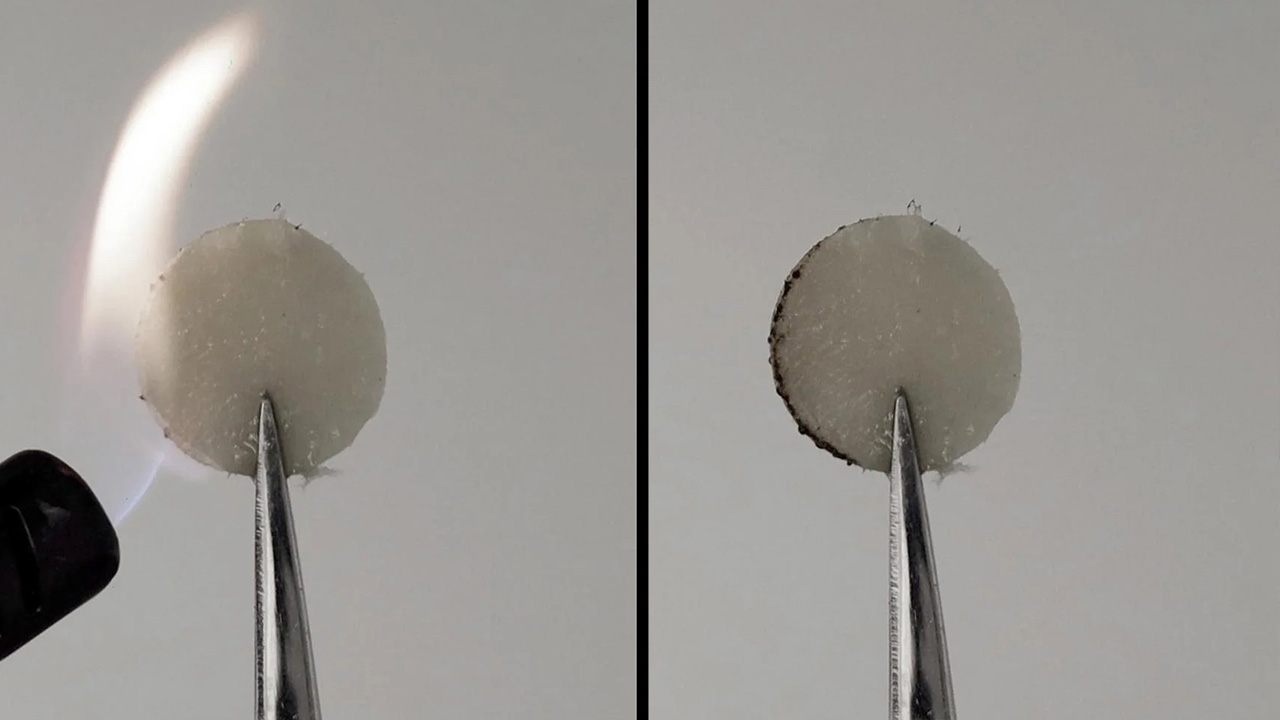By adding more lithium salt to the electrolyte substance, scientists have created a fire-resistant material that can withstand temperatures of up to 140F (60 °C).
The team added as much of a particular lithium salt (LiFSI) as possible to a polymer-based electrolyte, bumping the mix from less than half of the electrolyte's weight to 63 percent. The LiFSI served as an "anchor" for flammable solvent molecules, preventing them from catching fire. The combination lets a lithium-ion battery continue functioning at temperatures as high as 212F (100 °C).
Unlike other attempts at non-flammable electrolytes, the polymer-based design is gooey and can fit into existing lithium-ion battery components. That lowers the costs and lets companies use their current manufacturing processes. You could see the technology reach real-world products quicker than rivals that would require custom (and potentially expensive) production methods.
There's no mention of near-term attempts to commercialize the new battery tech, which was funded by the Energy Department. However, the researchers already see multiple benefits for electric cars. The design could not only lower the risk of EVs catching fire, but increase their range. Automakers frequently need to space lithium-ion battery cells to prevent them from heating each other. This advancement would let companies safely pack more batteries into a given area, allowing either higher capacities or more spacious interiors.
This could also prove useful for phones, laptops and other mobile devices where space and safety are priorities. If this proves to be the case, you may get a bit more runtime on a charge or have fewer worries about fires in your pocket. Though it wouldn't stop any fires that might result from damage, it could provide some reassurance in everyday use.
Source: Engadget

